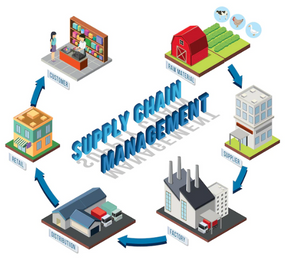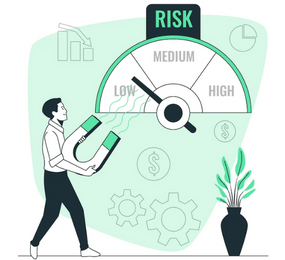Organisations increasingly rely on their supply chains to provide clients with goods and services in today's international economic environment. Disruptions to the supply chain, however, can have a substantial effect on how organisations operate, resulting in lost sales, a tarnished brand, and even legal consequences. Organisations must adopt data-driven approaches to proactive supplier risk management in order to reduce these risks.
The following are some crucial data-driven tactics that organisations may use to proactively manage supplier risk:
Data gathering and analysis: Gathering and analysing supplier data is the first stage in proactive supplier risk management. This covers not only fundamental details like the supplier's financial standing and compliance history, but also more intricate information like their supply chain structure and risk exposure. By gathering and evaluating
Organisations can better understand their supplier's risk profile and take the necessary steps to manage it by gathering and analysing this data.
Leveraging machine learning and AI: Using machine learning and artificial intelligence: Machine learning and AI algorithms can assist organisations in quickly analysing large datasets and spotting potential risks. These technologies, for instance, can be used to identify patterns of non-compliance or fraud in a supplier's activities, enabling organisations to proactively reduce the risks involved. AI and machine learning can also be used to forecast supplier performance and find future improvement opportunities.
Real-time monitoring and alerts: Organisations can discover supplier hazards as they materialise with the aid of real-time monitoring and warnings. For instance, organisations can set up alerts to notify them when a supplier experiences a significant change in financial health or compliance record. This can help organisations take immediate action to mitigate the risks associated with that supplier.
Collaboration in risk management: Collaboration in risk management entails identifying and jointly mitigating risks with suppliers. Organisations can improve ties with their suppliers and lessen the possibility of supply chain disruptions by sharing risk information with them and including them in the risk management process.
Continuous improvement: Continuous improvement is necessary for proactive supplier risk management because it is a continual process. Organisations can find areas for improvement and implement preventative measures by gathering and analysing data on supplier performance and risk exposure.
In conclusion, organisations must implement proactive supplier risk management strategies to guarantee the resiliency of their supply chains. Using data-driven tactics, such as gathering and analysing supplier data, utilising AI and machine learning, putting in place real-time monitoring and alerts, and collaborating with suppliers, and continuously improving, organisations can proactively manage supplier risks and ensure the continued success of their operations.
Find out more on “Data-driven Strategies to Proactive Supplier Risk Management” on 30th May - 1st June, 2023 at the Supply Chain Risk and Resilience Forum, in Berlin, Germany so you don't feel left out in the industry!
To register or learn more about the Forum please check here: https://bit.ly/3DsfWE4
For more information and group participation, contact us: [email protected]
















